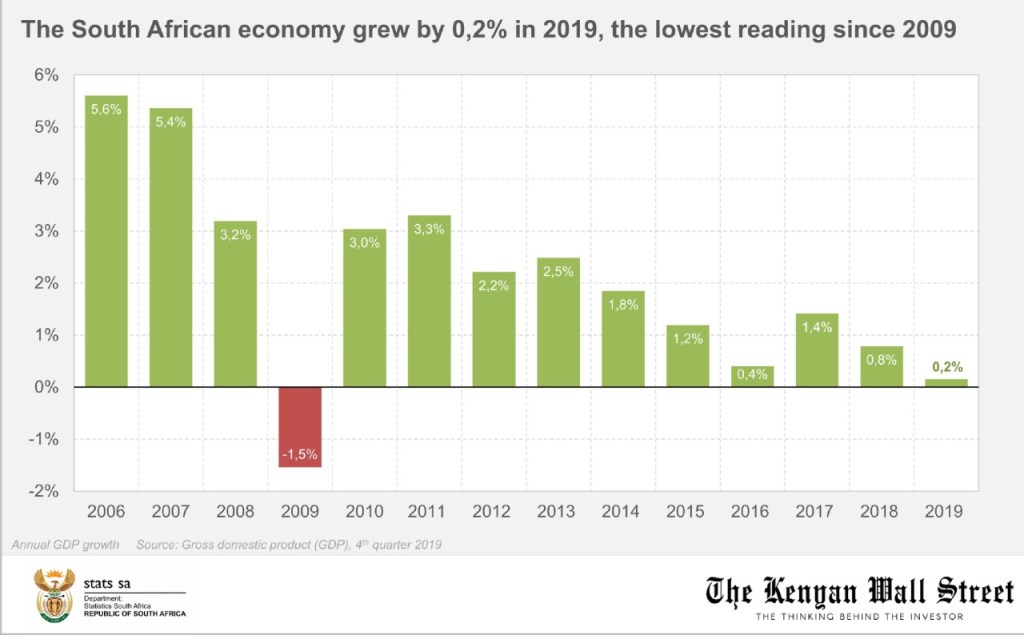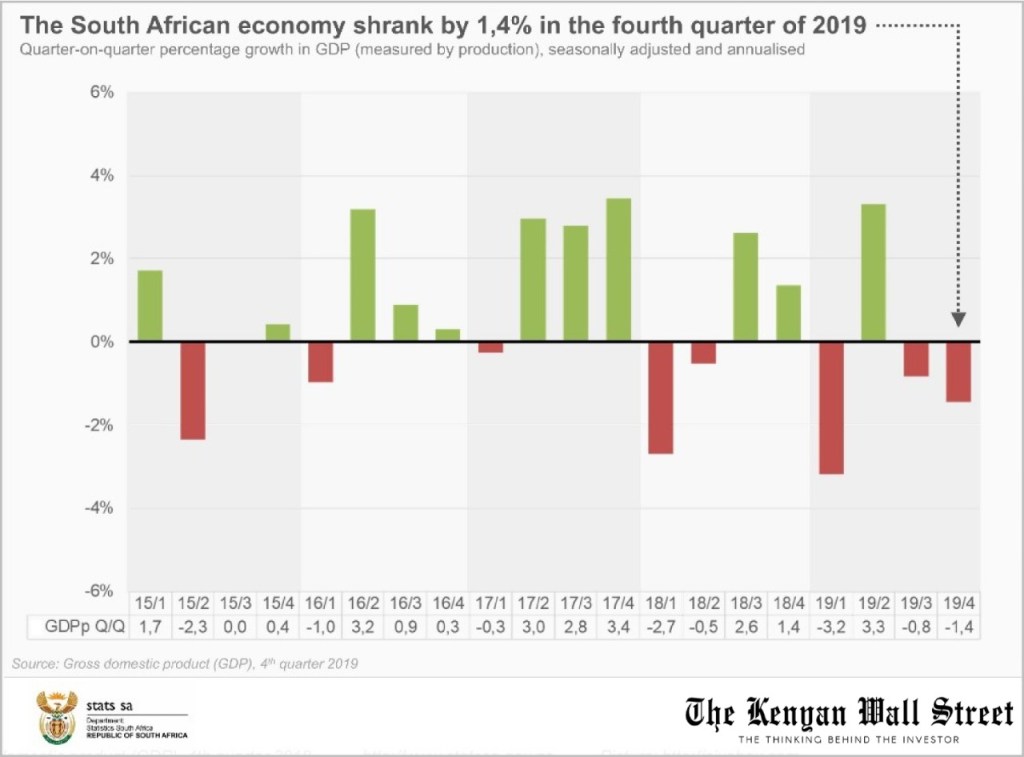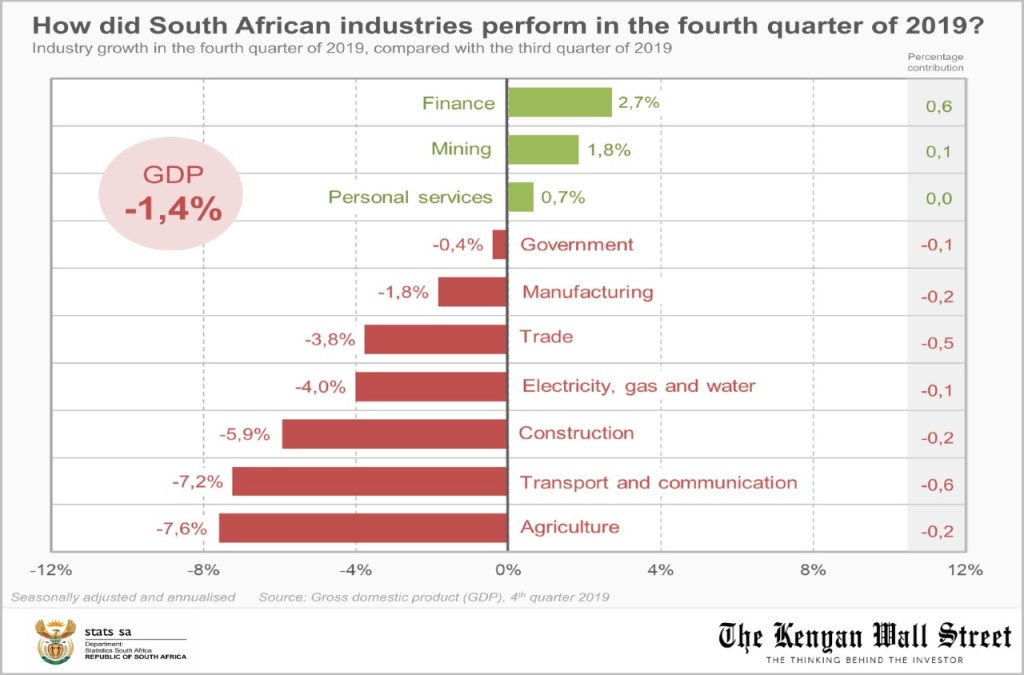South Africa’s economy has slid into a recession following dismal perfomance in 2019.
Latest statistics from the Statistics South Africa show economic contraction during the last two quarters of 2019. In the third quarter of 2019 the economy contracted by 0.8%, while in the last quarter of the year the contraction was by 1.4%.
Overall, the South African economy grew by 0.2% in 2019, the lowest reading since 2009 when the economy contracted by 1.5%.

Agriculture was the main drag on growth in 2019 decreasing by 6.9%, closely followed by construction, mining (1.9%), and manufacturing.
The main drivers of growth in 2019 were finance, real estate, business services, general government services, and personal services. For instance, general government services expanded by R37 billion to R822 billion with finance, real estate, and business services expanding by R35 billion to R889 billion.

South African Economy Q4 2019 ANALYSIS
Seven of the ten industries contracted in the fourth quarter. The largest negative contributors to growth in GDP in Q4 were transport, storage and communication industry and the trade, catering and accommodation industry.
Primary sectors; agriculture, forestry and fishing industries contracted by 7.6% contributing -0.2 of a percentage point to GDP growth. The decrease was mainly due to a fall in the production of field crops and horticultural products with agriculture experiencing its fourth consecutive quarter of negative growth.

Secondary sector; manufacturing, construction, and transport & communication contracted during Q4. For instance, manufacturing dipped 1.8% heavily driven by fewer production of motor vehicles, parts and accesories, and transport equipment.
There was a 4.0% contraction in the electricity, gas, and water industry in Q4 mainly due to decreases in electricity distributed and water consumption. The Stattistics department revealed a reduction in residential buildings, non-residential buildings, and construction works.
However, mining grew 1.8% driven largely by platinum group metals, iron ore and gold. Coal production fell in the quarter, mainly as a result of lower demand and heavy rains affecting production.
READ ALSO




